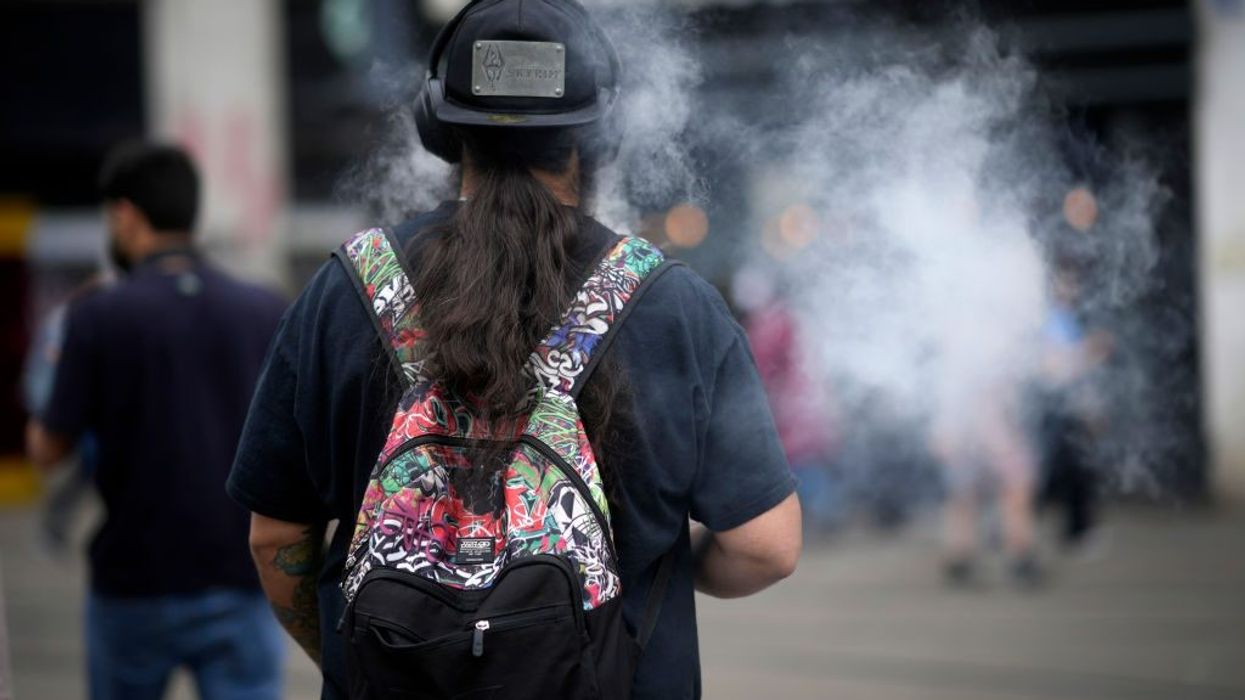DESPITE a government crackdown on colourful vape products being marketed to children, the Tory party has received a substantial six-figure donation from a company associated with such vapes, the Times reported.
In May, the Tory party recorded a £350,000 contribution from Supreme 8 Ltd, ranking as their third-largest donation in the second quarter of this year.
The director of the company is identified as Sandeep Chadha, commonly known as Sandy, and he also serves as the CEO of Supreme Plc, a company that has generated substantial revenue through the manufacturing and distribution of vaping products.
Prime minister Rishi Sunak, earlier this year, expressed concerns about his own daughters being enticed by brightly coloured packaging and flavoured vaping products designed to target children.
According to the report, Chadha recently highlighted the vaping industry's 'outstanding contribution' to his business, including the distribution of popular vaping brands such as Elf Bar and Lost Mary disposable vapes.
Supreme, which operates under its 88Vape brand, claims to be the 'largest producer of e-liquids by volume in the UK' and manufactures over 250,000 bottles of e-liquid per working day.
The company offers a wide range of flavoors, including dessert, sweets, and fruit blends, some containing up to 20mg of nicotine.
In June, NHS England CEO Amanda Pritchard revealed that 40 children in England were hospitalised last year due to 'vaping-related disorders', a significant increase from just 11 cases two years earlier.
Wes Streeting, the shadow health secretary, criticised the Tories for accepting the donation, stating, "We're sleepwalking into a new generation of children getting hooked on nicotine. Yet the Tories put lining their own pockets ahead of protecting children's health."
Streeting further pledged that a Labour government would ban the marketing and branding of vaping products to children, emphasising the party's commitment to safeguarding children's health.
Experts, including England's chief medical officer Sir Chris Whitty, have criticised the marketing of vaping products to children, highlighting that while vaping may help some smokers quit, it is 'utterly unacceptable' for these products to be marketed to minors.
They stress the unknown long-term effects of vaping and the risks of inducing nicotine addiction in non-smokers.
Earlier this year, the Royal College of Paediatrics and Child Health expressed deep concern about the long-term health effects of e-cigarettes on young individuals.
It also noted the adverse environmental impact of single-use vapes, such as Elf Bars and Lost Marys, with over 1.3 million discarded weekly in the UK.
Dame Rachel de Souza, the children's commissioner for England, advocated for a ban on nicotine-free vapes for those under 18, while some argue that persuading smokers to switch to vaping could save the NHS £500 million annually.
Currently, Britain has some of the lightest vaping restrictions in Europe. A government consultation on youth vaping closed in June and is expected to provide recommendations in the coming months.
While the debate over vaping's impact on health and children continues, the acceptance of donations from companies associated with the industry remains a contentious issue, the report added.
The Times report revealed that both Labour and the Tories registered over £17m in donations between April and June this year, a substantial increase from the same period last year.
Notably, a significant portion of the Tory funding came from Frank Hester, who matched the £5m donation by Egyptian-born billionaire Mohamed Mansour, the party's treasurer.
On the Labour side, Lord Sainsbury of Turville, a former supermarket chain chairman, donated £3m, adding to his previous contributions.





